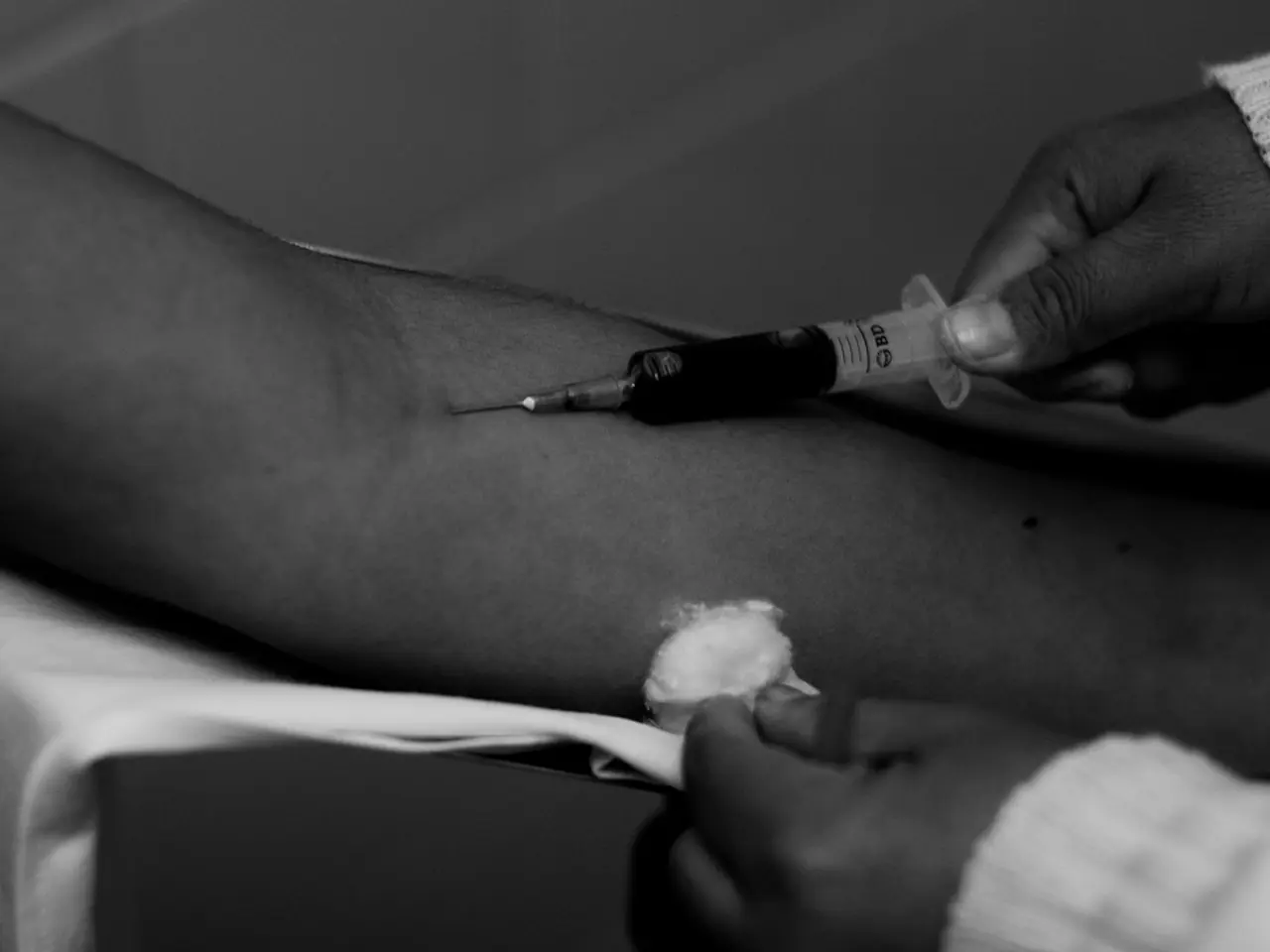HIV's Impact on the Tongue and Its Transmission via Kissing: An Examination
HIV, the human immunodeficiency virus, can have a significant impact on oral health. The virus primarily affects the tongue by causing various oral complications, such as aphthous ulcers, oral thrush, and hairy leukoplakia, which are indicative of an impaired immune system.
One common oral manifestation in HIV patients is aphthous ulcers. These painful, round or oval sores with white or yellow centers and red borders often appear on the tongue. About 50% of people with HIV experience these ulcers, causing discomfort in eating and speaking. Recurrence of these ulcers may suggest HIV progression.
Oral thrush, or oral candidiasis, is another common issue. This condition presents as white or yellow creamy patches on the tongue that can be wiped away to reveal red, irritated tissue underneath. HIV, due to its weakened immune system, provides a favourable environment for fungal overgrowth, particularly Candida species.
Hairy leukoplakia appears as vertical white corrugations on the tongue's side and is strongly associated with HIV infection. Median rhomboid glossitis, a red or red-and-white depapillated lesion in the mid dorsal tongue often involving Candida species, is another oral manifestation.
HIV may also lead to dry mouth (xerostomia), worsening oral health and increasing the risk for infections.
Treatment options for these oral complications focus on symptom relief and controlling infections. Aphthous ulcers usually heal in 1-2 weeks, and symptomatic treatment includes topical analgesics and corticosteroids to reduce inflammation and pain. Oral thrush is treated with antifungal medications such as nystatin, clotrimazole troches, or systemic agents like fluconazole. Hairy leukoplakia often requires no specific treatment, but antiretroviral therapy (ART) that improves immune function reduces its occurrence. Xerostomia management includes saliva substitutes, good hydration, and avoiding irritants.
Effective ART is essential to restore immune function, reduce opportunistic infections, and prevent or lessen oral complications related to HIV.
It's important to note that HIV can increase the likelihood of a person developing oral health problems. People with HIV may experience conditions such as oral herpes, gum disease, and Kaposi's sarcoma.
To reduce the risk of developing oral complications, it's recommended to take good care of oral hygiene, attend regular dental appointments, brush the teeth twice a day for at least 2 minutes each time, floss between the teeth, take HIV medication regularly, drink water regularly, avoid salt, alcohol, smoking, chewing or sucking on sugarless gum or sugarless hard candy, and use artificial saliva to reduce dryness of the mouth.
HIV is extremely unlikely to transmit through kissing, but it is possible if both partners have open wounds in their mouths. To minimize the chance of contracting HIV, abstain from sex, use a barrier method such as a condom during all sexual activity, avoid sharing needles, and use HIV prevention medication like pre-exposure prophylaxis (PrEP) for those at increased risk.
In summary, HIV can lead to a range of oral health issues, including ulcerative, fungal, and viral lesions. Treatment combines antifungals, topical agents for ulcers, symptomatic care, oral hygiene, and critically, antiretroviral therapy to improve immune status. It's crucial for people with HIV to prioritize oral health care to maintain overall well-being.
- Chronic diseases like oral herpes may be more likely to develop in people living with HIV, as their immune systems are compromised.
- Mental health is an essential aspect of overall well-being, and people living with HIV may experience additional stress related to managing their health and living with a chronic disease.
- HIV patients may experience dental complications, such as dry mouth (xerostomia), which can exacerbate chronic diseases and increase the risk of oral infections.
- Proper health and wellness practices, including regular dental visits, good oral hygiene, and taking recommended treatments, are crucial for people with HIV to manage their overall health and reduce the risk of developing oral complications.





